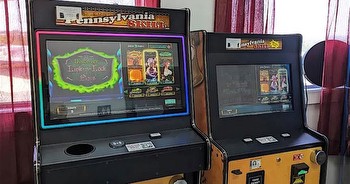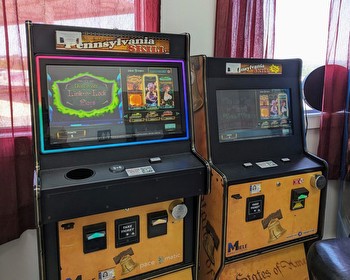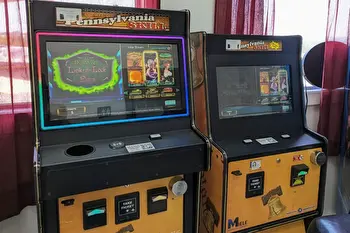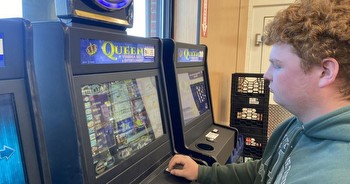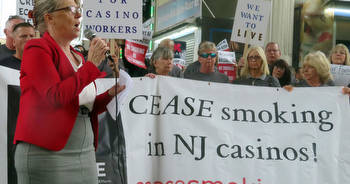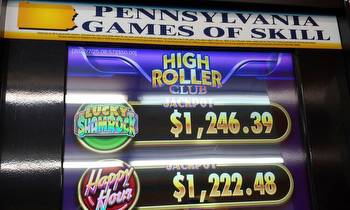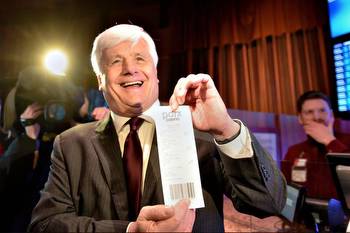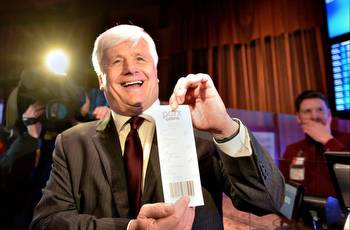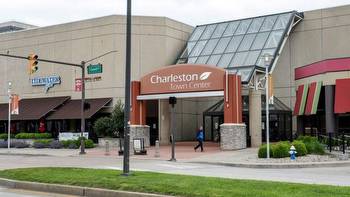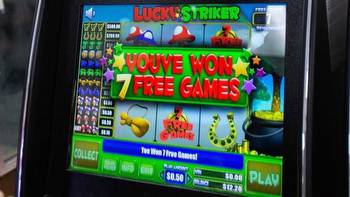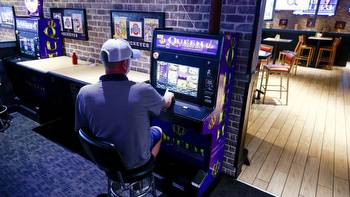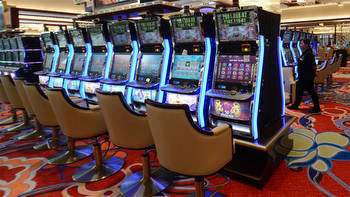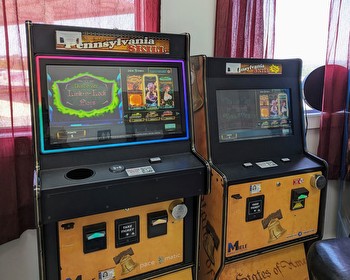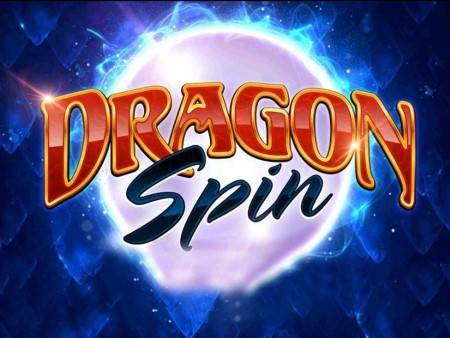Pennsylvania Casinos Worry About Still More Competition
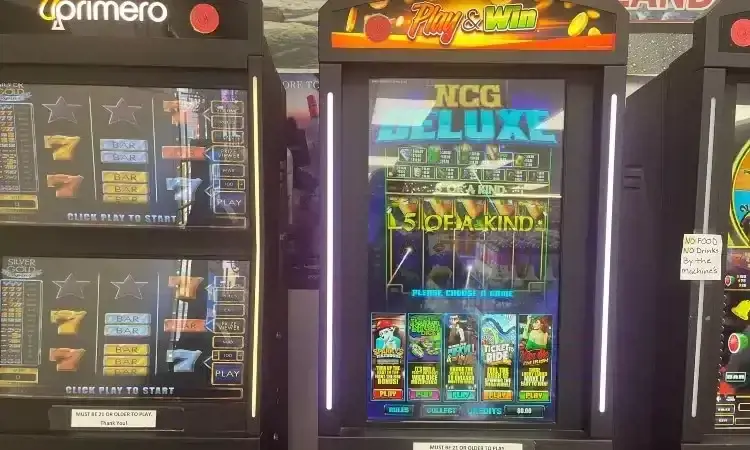
It has been six years since the Pennsylvania Legislature vastly expanded legalized gambling in the state, and a Senate committee heard pros and cons Monday about adding further to the options.
Representatives of the video gaming terminal industry urged the Senate Community, Economic and Recreational Development Committee to build upon the limited VGT opportunities at truck stops by using Illinois’ model of widely allowing those slots-style machines in neighborhood locations such as bars and clubs.
A panel of casino operators, however, told the senators that they are already under heavy competitive pressure from the unregulated skill games industry and any further legalization of convenience gambling would severely harm them.
There is nothing to indicate that the legislature at large or the particular committee, which handles gaming-related issues for the Senate, is about to take up gambling expansion, as no consensus among lawmakers has existed as yet. But the question of whether to regulate and tax the gray-market skill games or to ban them entirely has been a large point of debate in Pennsylvania, and a state Supreme Court ruling on their current legality is pending.
The legislature could act on them without awaiting any court opinion, however, and the Senate sponsor of a bill that would regulate those games reacted sharply to a casino representative’s remark that they are an “infestation” damaging the state.
“They’re made in my district, and several hundred people work in that industry, and I don’t consider my constituents working as part of an infestation,” retorted Sen. Gene Yaw, a Republican who represents the Williamsport area.
He followed that by accusing casino representatives of exhibiting “corporate greed” through their unwillingness to accept a regulated skill games industry.
“All you want is more,” Yaw said. “You make record profits, and you talk about how people have to come to your place. … I look at VFWs or mom-and-pop convenience stores with two or three machines and I don’t understand how that’s competition.”
Casinos aligned about their pressures
Pennsylvania’s casino industry has no formal association to which operators of the 17 brick-and-mortar venues in the state belong, but executives from PENN Entertainment, Parx Casino, and The Cordish Companies’ two Live! facilities echoed one another in a presentation to the Senate committee.
Among them, the three companies operate eight of the state’s casinos, and they jointly stressed that any authorization of widespread neighborhood gambling locations would be unfair, considering the hundreds of millions of dollars they have invested in properties on the assumption that no further expansion would take place.
“A policy change resulting in massive expansion would be an existential threat for the gaming industry here and the tens of thousands of jobs they provide,” said Eric Schippers, PENN’s senior vice president of government relations. “We look for ways we can reinvest in our business. It’s very difficult to do that if the rules are constantly changed in the middle of the game.”
Officials of Parx Casino, the largest revenue generator in the state, noted that while Pennsylvania operators saw record gaming revenue of $5.51 billion in the 2022-23 fiscal year and supplied $2.37 billion in direct government gaming taxes from it, revenue of $2.45 billion from slots play was essentially flat with pre-COVID years. While online forms of gaming are the main reason for an overall increase, Parx officials said there’s been an increase in people visiting casinos for table games but not slots.
“There’s no explanation other than unregulated games have grown exponentially over that time,” said Parx CEO Eric Hausler, who maintained Pennsylvania casinos are at a disadvantage compared to those in neighboring states due to both higher tax rates and the skill games proliferation. “It’s solely a convenience issue. When you put a game closer to the customer, they go to a closer machine,”
But Hausler, Schippers, and Joe Billhimer, COO of Cordish’s Live! casinos in Philadelphia and Westmoreland County, said those skill games lack any of the consumer protection, security, and responsible gambling features that are required of the casinos regulated by the Pennsylvania Gaming Control Board.
Even if the skill games were brought into the regulated sector similar to what Illinois has with VGTs in hundreds of locations, as Yaw has proposed, the nature of such gambling doesn’t have the same protections as casinos provide, said Schippers, whose PENN has operations in Illinois.
“To say you can regulate these in a way where you just flip a switch is a disservice,” he said. “If you think a bartender can casually watch what is going on in the darkest corner of the bar, it’s not enough.”
VGT operators want bigger role
No representatives of the skill games industry spoke at the hearing, as they are to be on a panel at a follow-up committee meeting Wednesday morning, but three officials from the VGT sector all requested a bigger piece of Pennsylvania’s gambling pie.
The state has nearly 70 truck stop locations — primarily in rural areas — permitted to have five VGT terminals each, but Matthew Hortenstine, general counsel for machine supplier J&J Ventures Gaming, said the state would see far greater overall revenue benefit by permitting the devices in venues such as clubs and bars.
In Illinois, which adopted widespread VGT locations in 2009, there are now more machines in such small locations than in the state’s casinos, and they provide more tax revenue to the state than do the casinos.
“We would think that if you allowed the VGT market to expand similarly to Illinois, it would probably expand total tax revenue by about $800 million,” Hortenstine said.
The growth of truck stop locations in Pennsylvania has not been what was originally envisioned, as financial considerations and regulatory licensing requirements for employees have kept the number of establishments seeking the machines to fewer than half of the facilities that would be eligible, the VGT suppliers say.
In some cases, truck stops that had the legal VGTs have removed them and replaced them with the skill games that have no oversight from anyone, the suppliers said.
“Right now it’s a lot more convenient for the truck stops to host the unregulated games, [where] nobody knows what’s going on,” said Rick Kirby, chairman of Betson Enterprises.
Regardless of whether VGTs are more widely legalized, industry representatives called for easing of regulatory burdens so the establishments might only need one employee licensed by the state to oversee gaming operations. Currently, at least five employees must be licensed, with one present at all times that machines are in operation.








